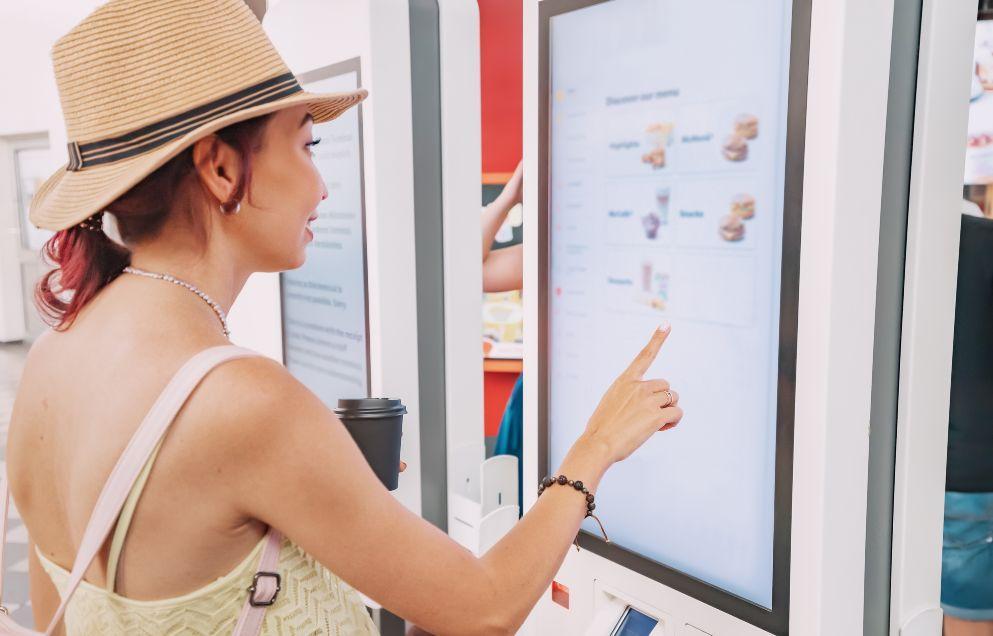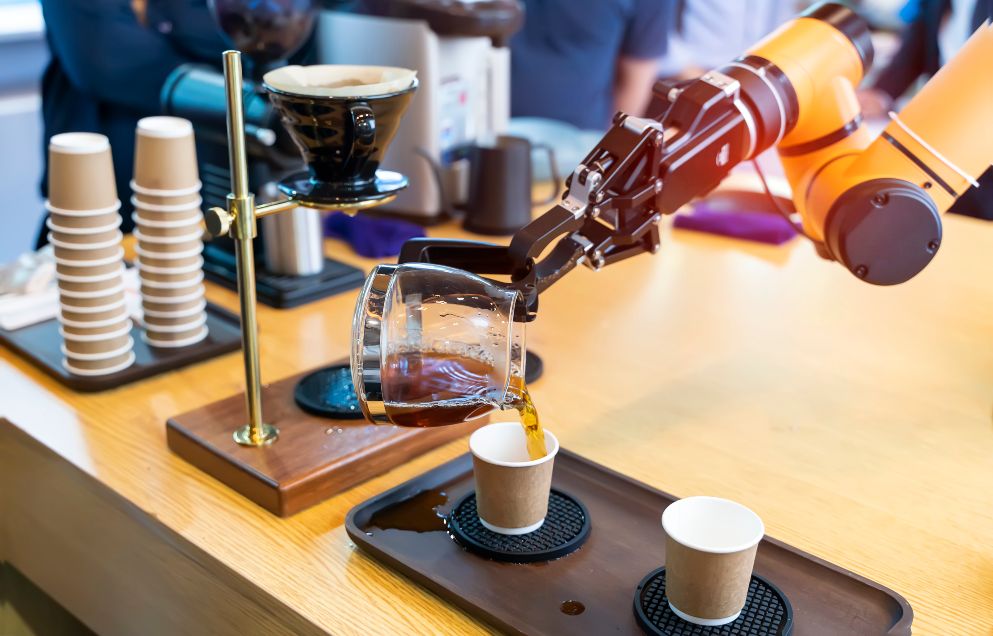How technology can help reduce staffing costs
In the face of growing operational costs and a shortage of labour, UK hospitality businesses are increasingly turning to technology to reduce staff expenses while maintaining, or in some cases enhancing, service quality. Innovations such as electronic menus, robotic servers and AI-driven staff planning are at the forefront of these new innovations. So, what options do businesses have, what are the benefits and potential pitfalls, and does the new technology live up to the hype?

The adoption of electronic menus and self-ordering kiosks has become commonplace among UK restaurants aiming to streamline operations and reduce reliance on front-of-house staff, particularly after Covid. These digital interfaces allow customers to browse menus, customise orders, and make payments without direct staff involvement.
For instance, major fast-food chains like McDonald's have installed self-service kiosks across their UK outlets, enabling customers to place orders independently. Apps are also being used by businesses such as Wetherspoons so you can order without leaving your seat. This not only reduces queue times but also allows staff to focus on food preparation and maintaining restaurant cleanliness. Similarly, many UK pubs and casual dining establishments have introduced QR code-based menus accessible via smartphones, minimising the need for physical menus and order-taking staff.
Robotic assistance in hospitality has long been seen as a novelty. Japan in particular has embraced the future-facing technology since the 1980s to get people through the doors, leading to the Dawn cafe opening last year which allows disabled employees to operate robotic servers from home. In LA, Uber Eats now has robots that can deliver food to your door.
But what about the UK? While revolving conveyer belts have long been used in the UK by Yo Sushi!, robotic servers becoming a common sight may still be a way off. The UK’s first robot restaurant unfortunately closed its doors in 2020 due to rising costs, but restaurants like Yari Club are employing automated ‘robotic’ tech to grill their skewers, while Sakura in Manchester uses robot waiters to deliver food to the table.
The theme here is obviously Japanese food, but there are a variety of service robots that can handle tasks such as delivering food and clearing tables, reducing the physical burden on human staff and allowing them to concentrate on customer service.
Large UK hotels could also follow the example of Le Méridien Étoile in Paris. The hotel uses robots to assist with breakfast service, transporting heavy loads of dishes back to the kitchen. This has alleviated staff workload and improved service efficiency, demonstrating the potential benefits of robotics to plug the manpower and talent gap.
In the UK, while full-scale adoption is still emerging due to significant upfront costs, automated kitchen equipment, such as robotic chefs capable of both making and tasting specific dishes, can maintain consistency and speed up service, thereby ensuring quality levels are always high.

Artificial intelligence is another, perhaps more immediately implementable tech that offers sophisticated solutions for optimising staff schedules and managing resources, which directly impacts labour costs. AI-driven tools can analyse historical data, current trends, and external factors to forecast demand accurately, ensuring that staffing levels align with the rise and fall of customer demand.
For example, businesses like Pizza Express and Wagamama have implemented Fourth's AI Forecasting system, with Graham Fenwick, Productivity & Change Director at Pizza Express, saying they have seen “a 25% improvement in scheduling accuracy”. By predicting peak times more precisely, the restaurant chain can allocate staff more efficiently.
Additionally, AI-powered inventory management systems help minimise food waste and overstocking. By predicting which menu items will be in demand, these systems allow for more strategic purchasing decisions, ensuring that inventory levels are optimised and reducing the financial losses associated with perishable goods. This can also be used to predict demand based on fluctuations in weather, an important consideration in the UK, where al fresco dining in the summer weather often means a very different menu to hearty winter options.

While technology offers promise, what to implement requires careful consideration. The initial investment in systems like robotic servers or comprehensive AI platforms can be substantial, posing a barrier for small to medium-sized enterprises. Moreover, the integration of technology must be balanced with the preservation of the personal touch that defines the hospitality industry.
Robots are a novelty for now, but people may soon pine for human interaction if they become ubiquitous. This will be particularly the case if robots are programmed within specific parameters or for specific jobs, meaning wider risks such as floor spillages may go unnoticed if there are fewer human eyes on the floor.
Therefore, it’s essential to monitor customer reception to technological changes. For instance, the restaurant chain Itsu initially embraced self-service kiosks but later reintroduced more staffed tills after recognising the value of human interaction in customer service, such as upselling and better menu explanations, something crucial when it comes to the dangers of allergies and ensuring no one is at risk. On top of this there is the fact that sometimes people also just want to chat.

Overall, the integration of technology in UK hospitality businesses presents some good and growing options, some of which could be part of a viable strategy for reducing staff costs. It really depends on your business and what it needs. But by adopting electronic menus, robotic assistance or AI-driven management tools, there are ways you can significantly enhance operational efficiency and customer satisfaction. However, a thoughtful approach that considers initial investments, customer experience, and the unique character of each venue is crucial to successfully navigating what will inevitably become a more technologically reliant future.